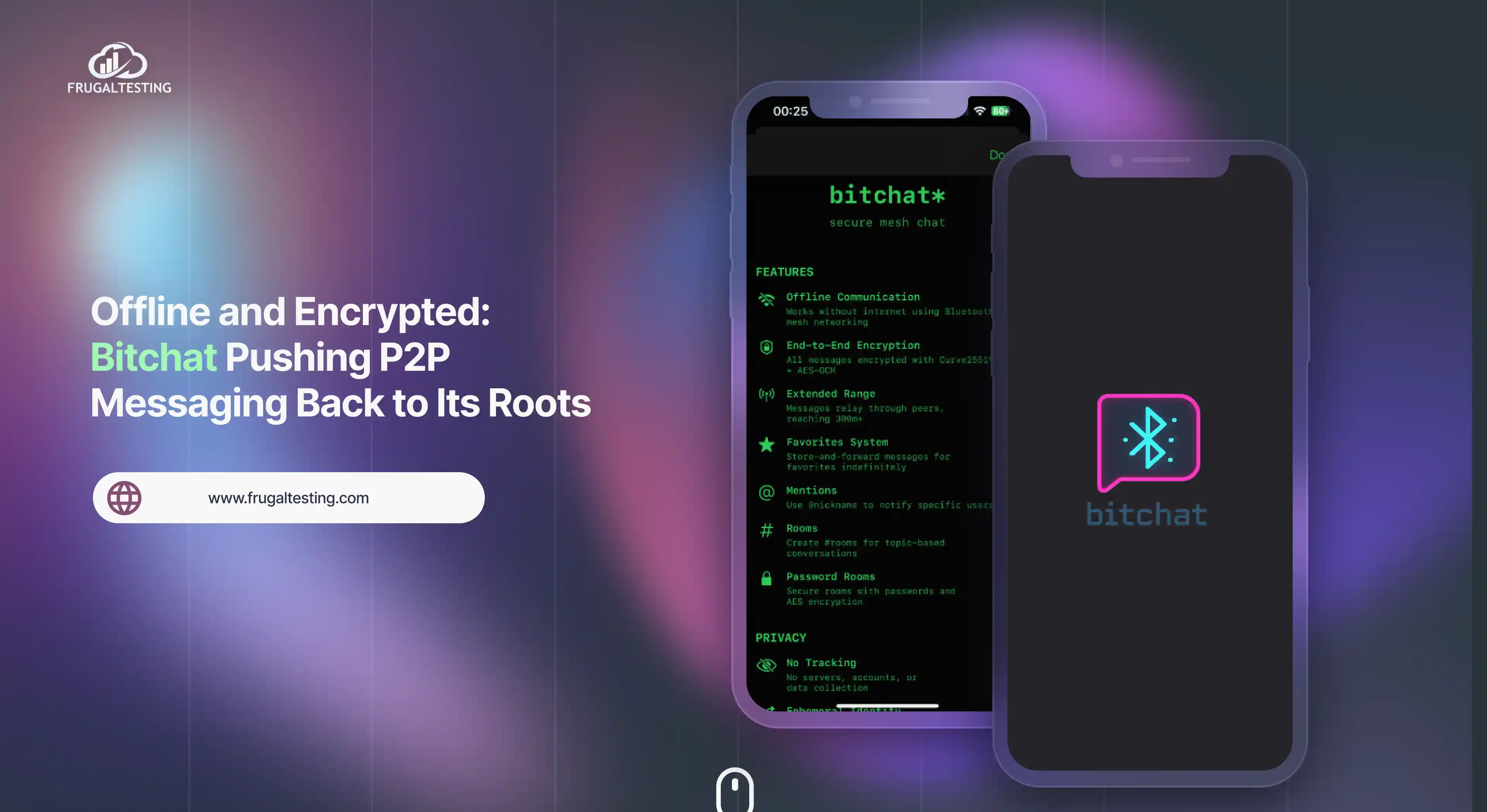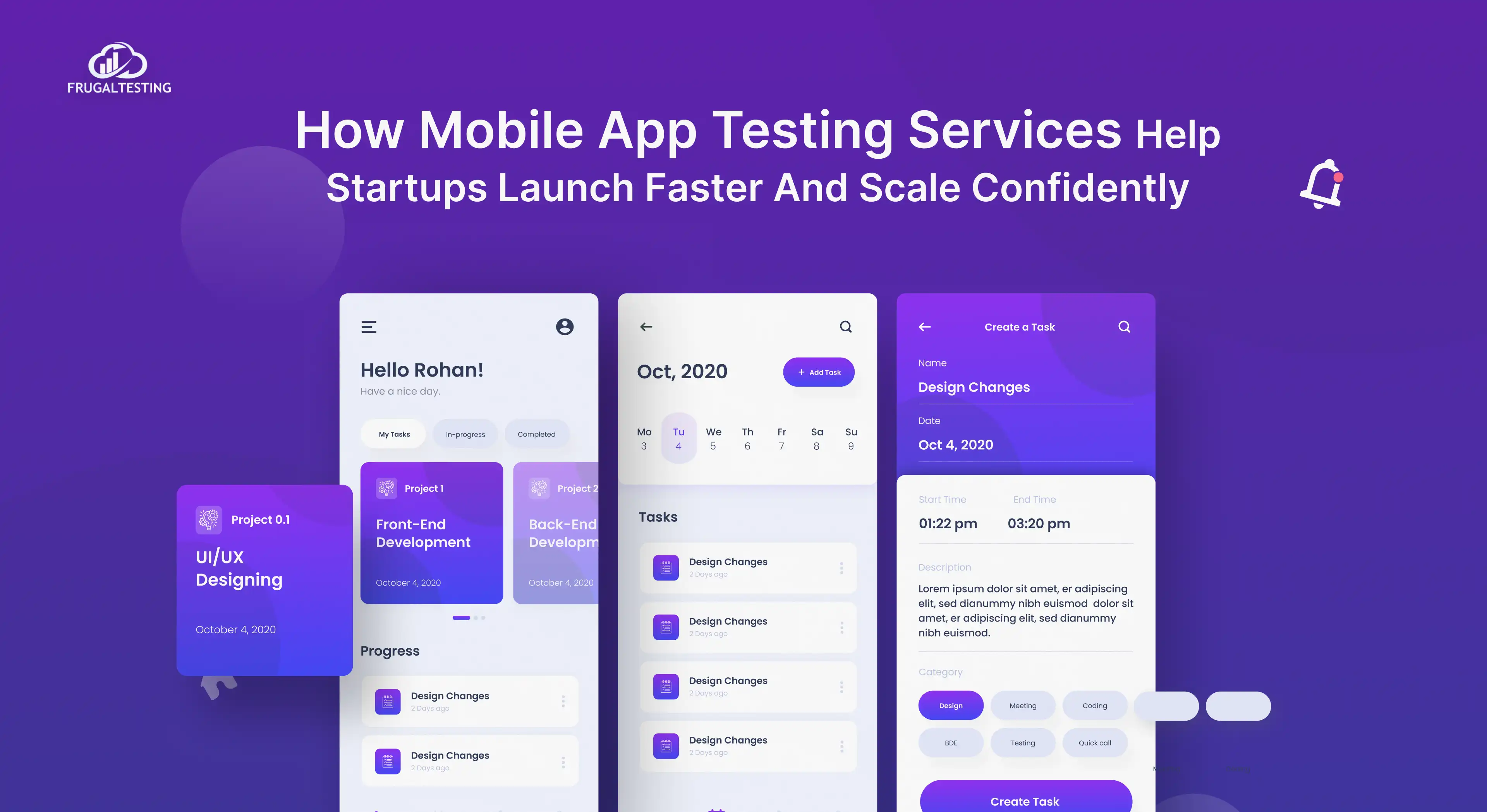Companies are turning to AI for software testing to keep up with growing demands for speed and accuracy. While manual testing ensures thorough checks, it often falls short in fast-paced development cycles. AI-powered tools can analyze large datasets, create detailed test scenarios, and detect bugs more efficiently, resulting in faster releases and higher software quality.
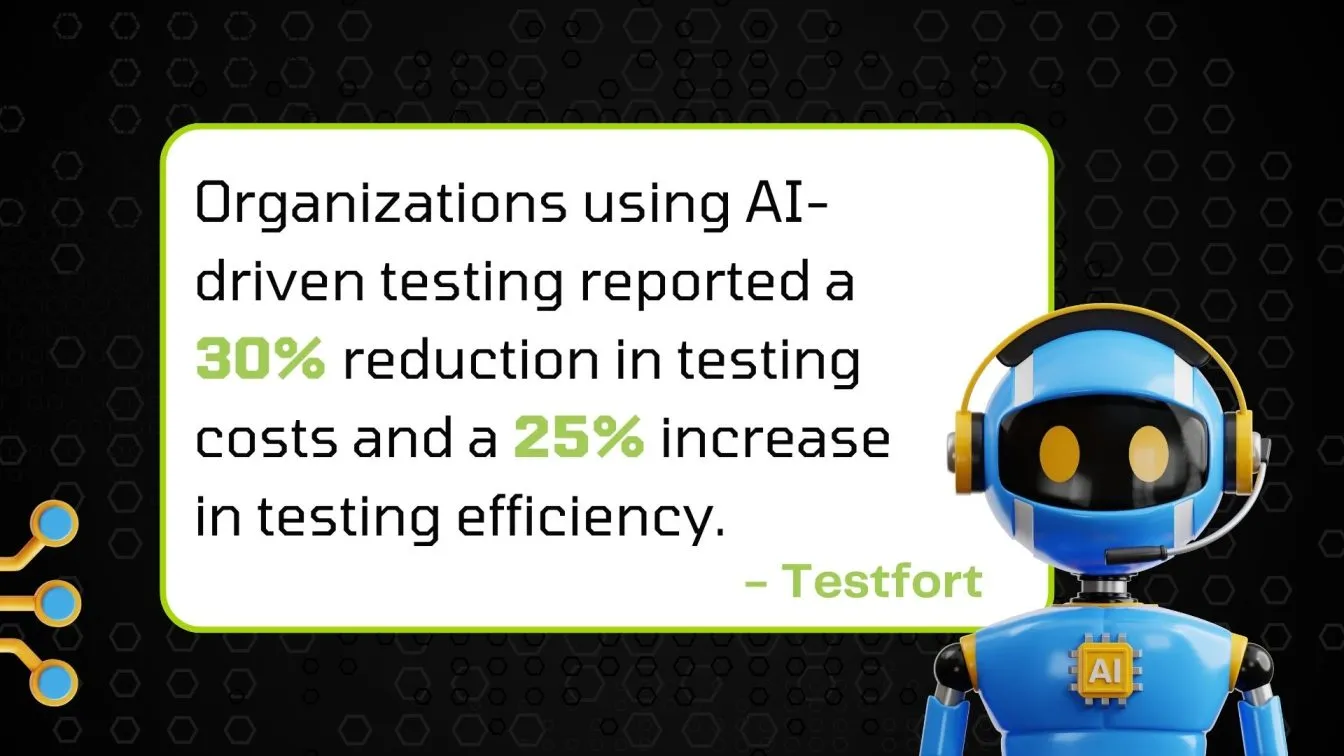
By automating repetitive tasks, AI allows teams to focus on strategic aspects of development, ultimately reducing testing costs and accelerating time-to-market. Many artificial intelligence companies are leveraging the advantages of artificial intelligence in testing to improve accuracy, minimize errors, and drive innovation, making AI adoption essential for businesses aiming to stay competitive in the digital age.
What’s Next? Keep Scrolling:
📌 AI in Testing: How AI boosts automation, speed, and accuracy.
📌 Business Benefits: AI improves quality, reduces errors, and saves time.
📌 AI vs. Manual Testing: Why AI outperforms traditional methods.
📌 Tackling AI Challenges: Key issues and solutions in AI testing.
📌 Top AI Tools: Popular tools for AI-driven software testing.
What Is AI-Driven Software Testing and Why Does It Matter
AI-driven software testing integrates artificial intelligence into the quality assurance process, automating tasks traditionally performed manually. By leveraging AI, companies can enhance their software testing services, leading to faster and more accurate results. AI-powered tools can analyze vast datasets, predict potential problem areas, and generate comprehensive test cases, thereby improving test coverage and efficiency.
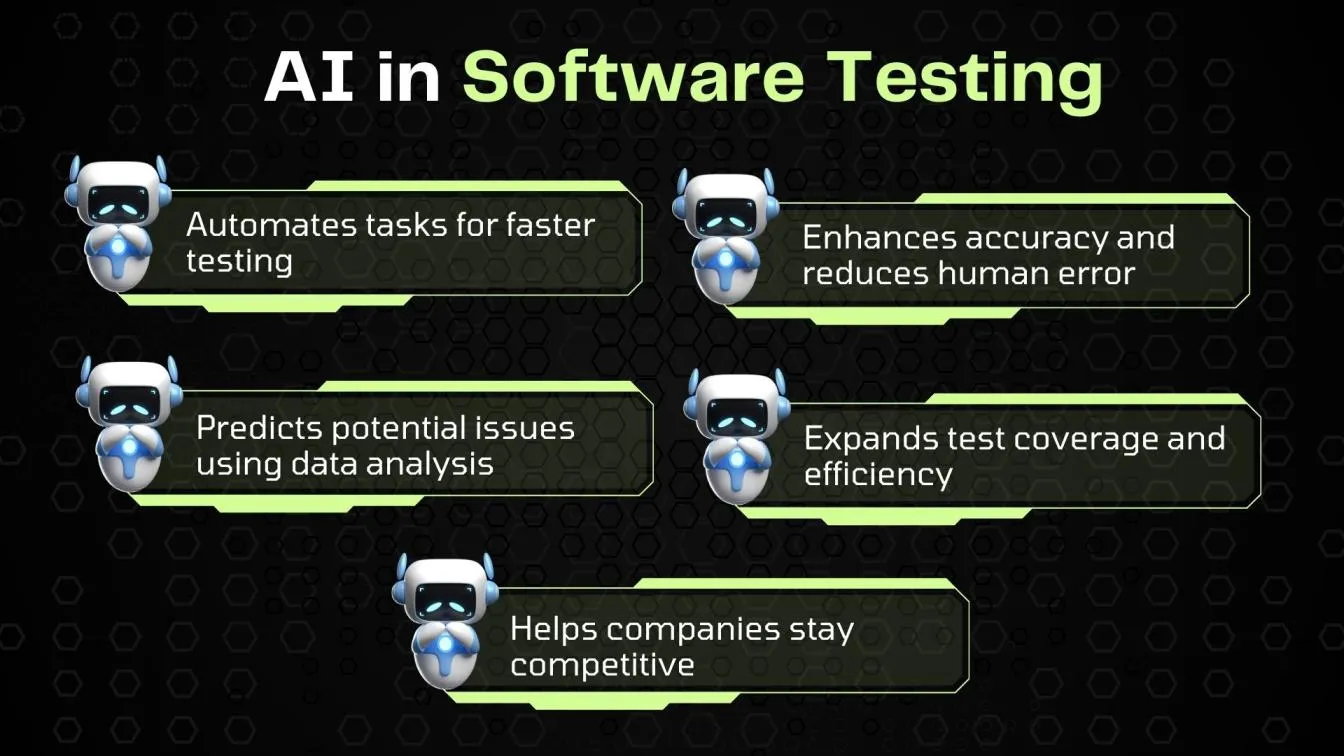
This approach not only accelerates the testing phase but also reduces human error, resulting in more reliable software products. Software testing services companies are increasingly adopting AI to stay competitive and meet the growing demands for high-quality software. By integrating AI into QA software testing services, businesses can achieve significant cost savings and expedite time-to-market.
Embracing AI in software automation testing services is becoming essential for organizations aiming to enhance their software testing automation services and deliver superior, innovative software solutions.
How AI Is Revolutionizing Software Testing Services
Artificial Intelligence (AI) is transforming software testing services by enhancing efficiency and accuracy. Key impacts include:
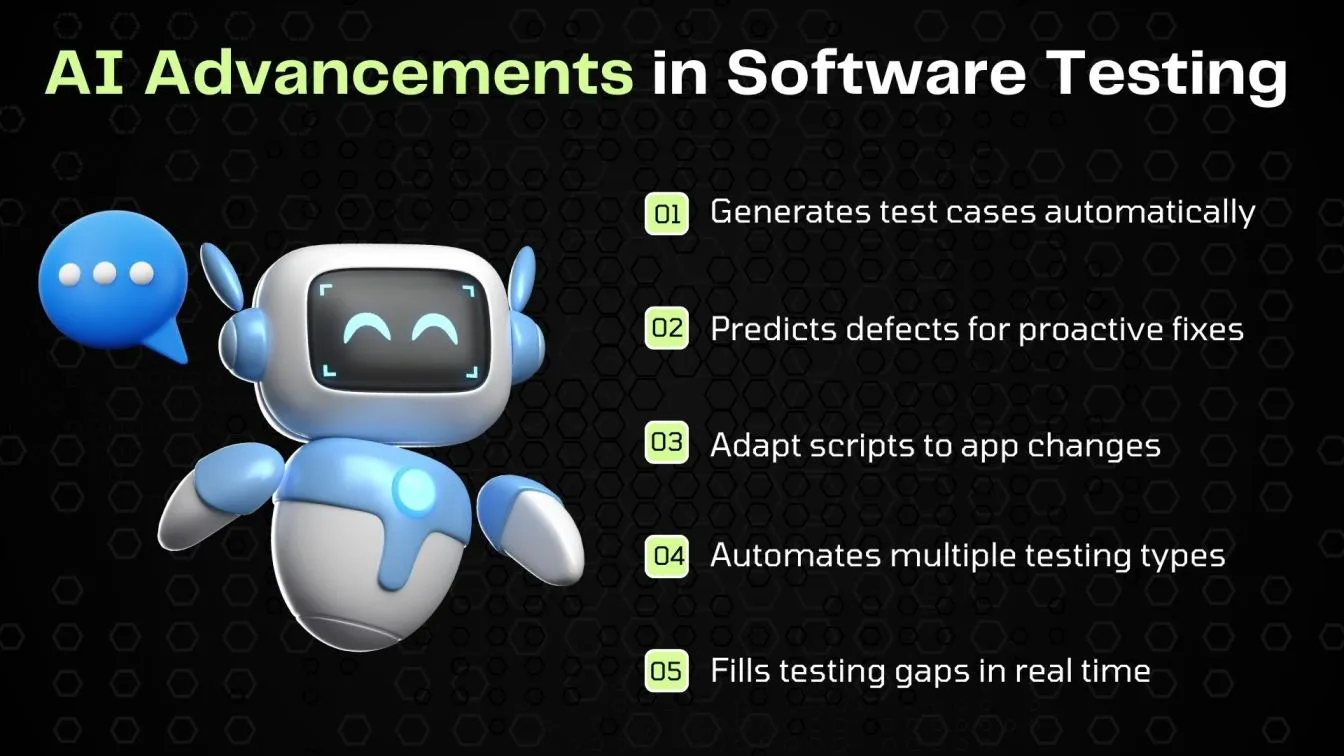
- Automated Test Generation: AI algorithms analyze application data to automatically create comprehensive test cases, reducing manual effort and improving test coverage.
- Predictive Analytics: By examining historical defect data, AI predicts potential problem areas, enabling proactive issue resolution and enhancing software quality.
- Self-Healing Test Scripts: AI detects changes in the application and adjusts test scripts accordingly, minimizing maintenance efforts and ensuring consistent testing.
- Enhanced Test Execution: AI-powered tools automate various testing types, including functional, regression, and performance tests, leading to faster and more accurate results.
- Efficient Gap Analysis: AI automates the identification of testing gaps and generates missing tests in real time, ensuring thorough test coverage and reducing the risk of undetected defects.
Key Benefits of AI-Powered Software Testing for Businesses
Artificial Intelligence (AI) is transforming software testing services, offering businesses several key benefits. Firstly, AI automates test case generation by analyzing application requirements and user behavior, reducing manual effort and enhancing accuracy.
Secondly, AI's predictive analytics identify potential defects early, enabling proactive issue resolution and improved software quality.
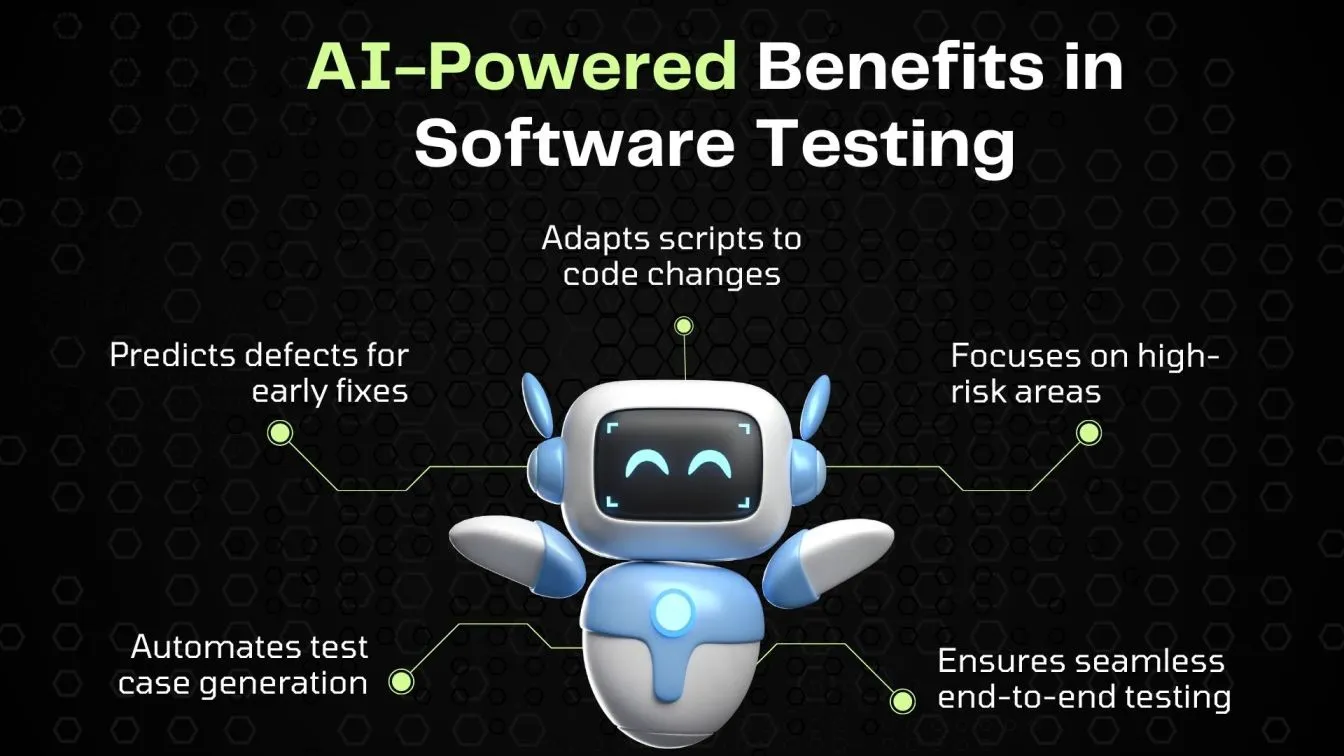
Thirdly, AI-driven self-healing scripts adapt to code changes automatically, minimizing maintenance efforts and ensuring consistent testing. Additionally, AI enhances test prioritization by focusing on high-risk areas, accelerating release cycles, and reducing time-to-market. Lastly, AI facilitates comprehensive end-to-end testing, ensuring seamless functionality across all application layers. By integrating AI into their testing processes, businesses can achieve greater efficiency, accuracy, and cost-effectiveness.
The Role of Machine Learning in AI-Driven Software Testing
Machine learning plays a pivotal role in AI-driven software testing, significantly enhancing efficiency and accuracy. By analyzing historical test data, machine learning models can predict potential defects, enabling proactive issue resolution and improving overall software quality. These models facilitate intelligent test case generation, ensuring comprehensive coverage and reducing the manual effort traditionally required in testing processes.
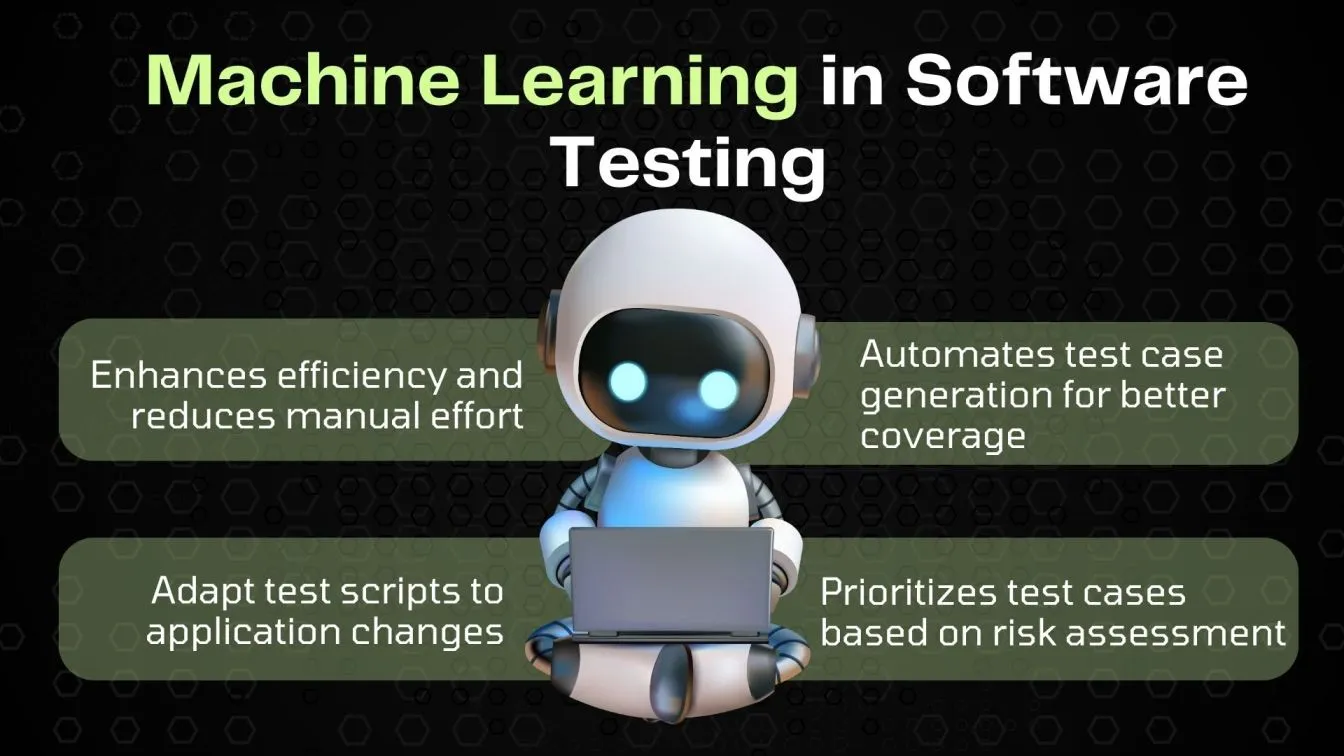
Machine learning tools dynamically prioritize test cases based on risk assessments, optimizing resource allocation and focusing efforts on critical areas. Additionally, machine learning solutions support self-healing test scripts that adapt to changes in the application, minimizing maintenance efforts and ensuring consistent testing outcomes.
By leveraging machine learning services, organizations can streamline their software testing processes, resulting in higher-quality products and accelerated time-to-market.
How AI Enhances Accuracy and Speed in Software Testing
Artificial Intelligence (AI) is revolutionizing software testing by enhancing accuracy and speed. AI-powered tools analyze vast datasets to detect patterns and anomalies that manual testing might miss, improving defect identification. By automating repetitive tasks, AI reduces human error and accelerates testing, making it essential for CI/CD pipeline efficiency.
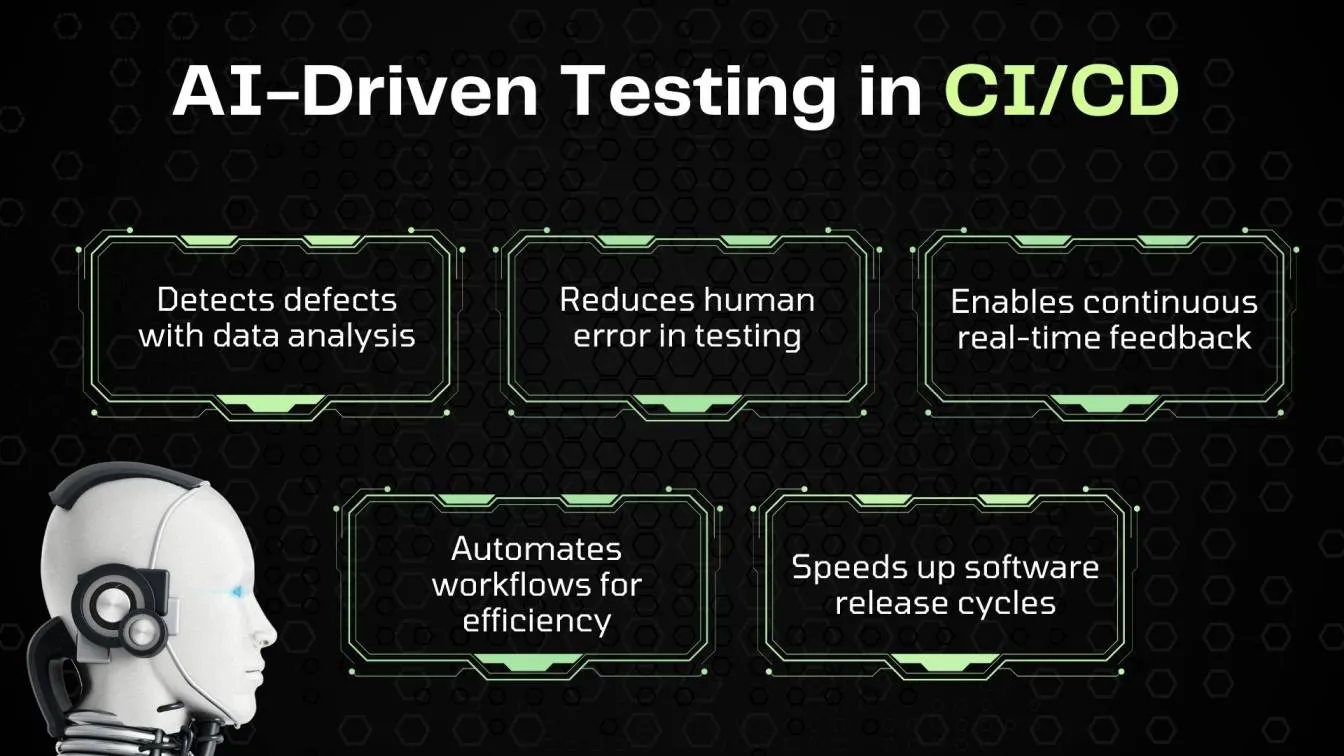
AI-driven testing integrates seamlessly with CI/CD tools, enabling continuous testing and real-time feedback to address issues during development. CI/CD pipeline tools ensure smooth automation, reducing delays and improving software quality. This approach streamlines workflows, enhances reliability, and shortens release cycles, ultimately delivering robust software with faster time-to-market and improved user satisfaction.
Cost Savings and Efficiency: The Business Case for AI Testing
Integrating Artificial Intelligence into software testing offers businesses significant cost savings and operational efficiencies. Key advantages include:
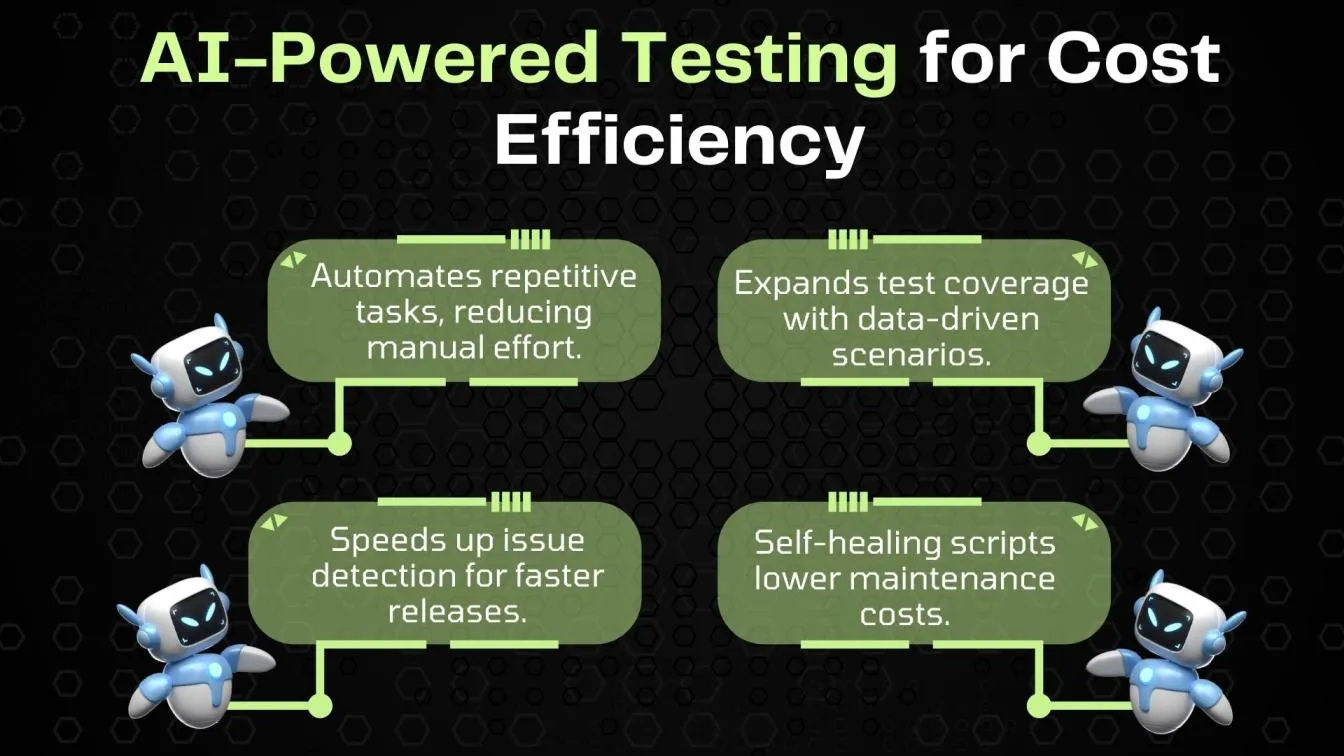
- Reduced Manual Effort: AI automates repetitive testing tasks, minimizing human intervention and lowering labor costs.
- Enhanced Test Coverage: AI-driven tools can analyze vast datasets to create comprehensive test scenarios, ensuring thorough testing and reducing the risk of post-release defects.
- Faster Time-to-Market: By accelerating test execution, AI enables quicker identification and resolution of issues, allowing products to reach the market sooner.
- Lower Maintenance Costs: AI-powered self-healing scripts adapt to application changes, reducing the need for constant manual script updates and associated expenses.
- Optimized Resource Utilization: AI tools efficiently manage testing environments and resources, cutting costs related to infrastructure maintenance and scaling.
AI vs. Traditional Testing: What Makes AI a Better Choice?
AI-driven testing is transforming the way software is tested compared to traditional manual testing. While manual software testing requires human testers, AI automates and optimizes the process, making it more efficient and accurate. The table below highlights key differences:
By leveraging AI in software testing, businesses can overcome the limitations of manual testing types and achieve higher efficiency.
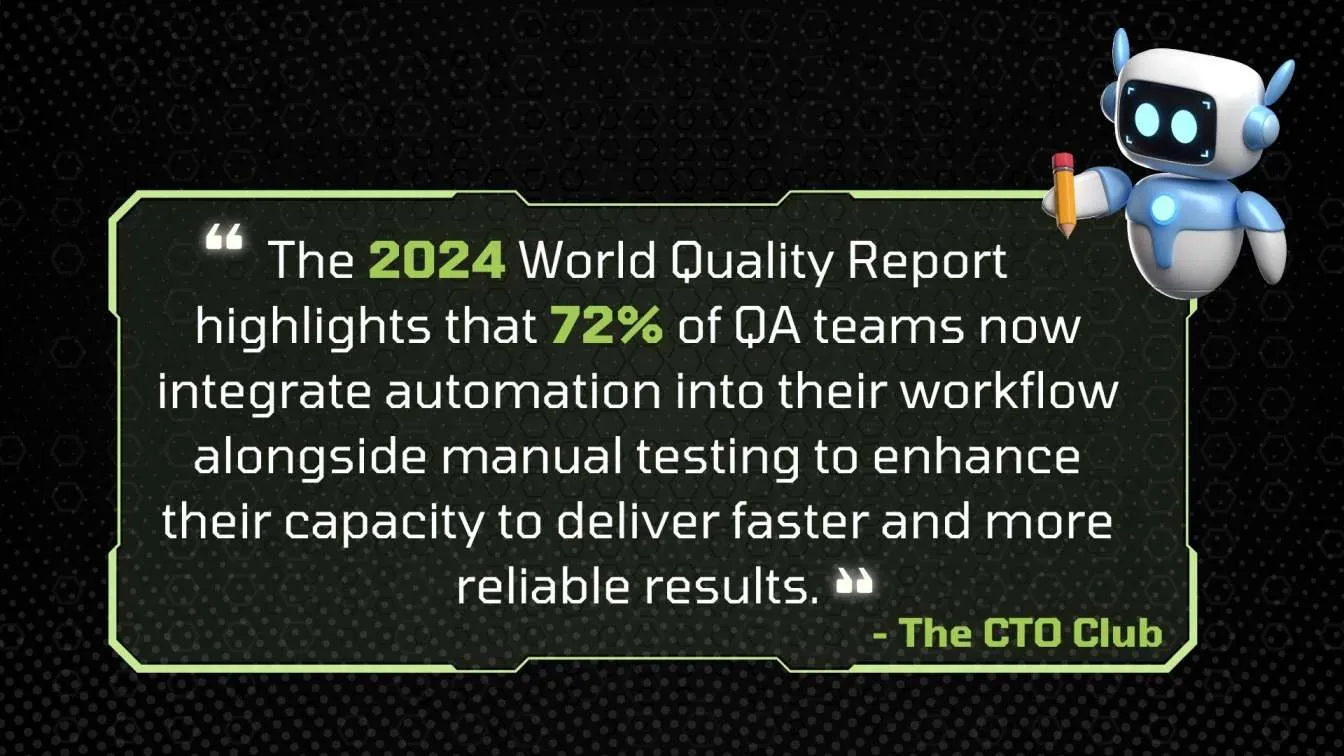
How AI Testing Reduces Human Errors in Software Development
AI-driven testing minimizes human errors in software development by automating critical testing processes. It ensures accuracy by generating unit test cases that detect issues at the code level. With automated test cases, AI systematically executes tests, eliminating manual inconsistencies and improving test reliability. AI-driven automation test cases adapt to application changes, reducing the need for frequent script updates.
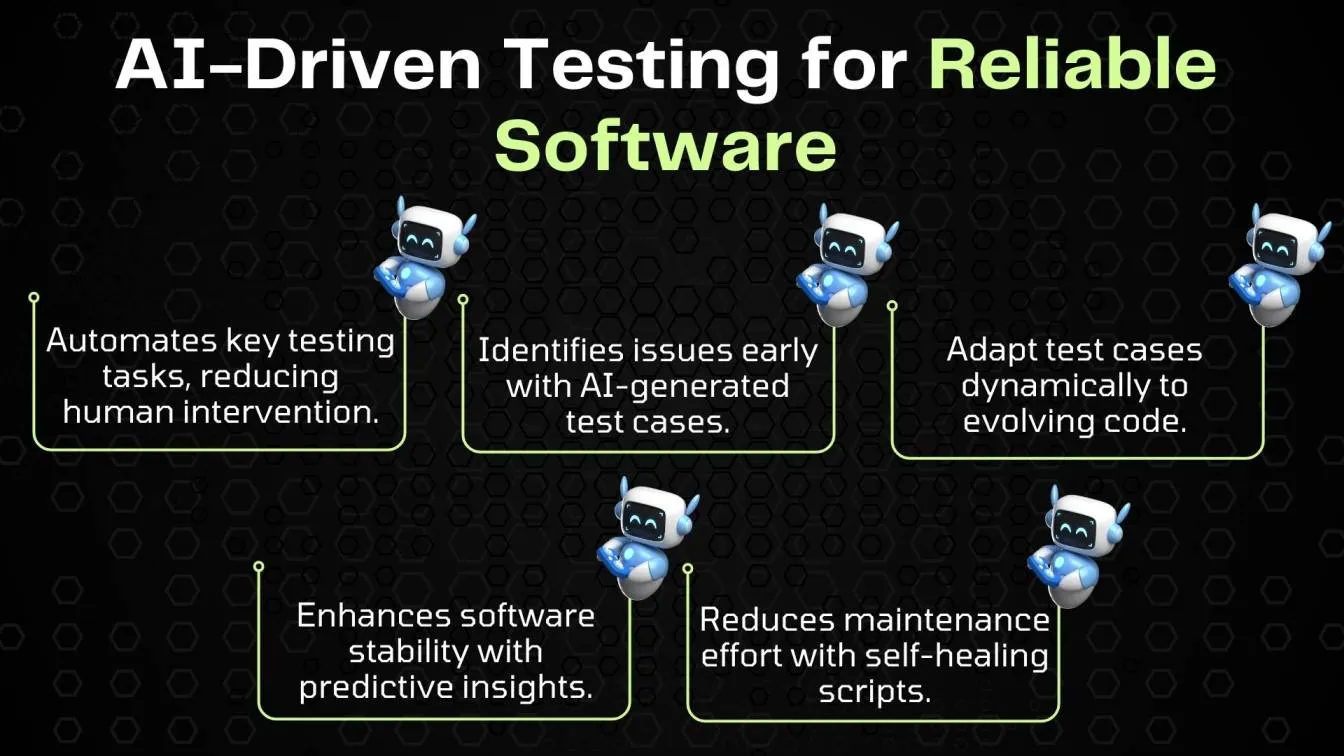
By analyzing historical defects, AI predicts potential failures, allowing proactive issue resolution. Additionally, AI ensures consistent test execution, minimizing overlooked bugs. This automation enhances software quality, accelerates development cycles, and ensures more stable applications, leading to faster releases and improved user satisfaction.
How AI Testing Improves Software Quality and Reliability
AI-driven testing plays a crucial role in improving software quality and reliability by automating testing processes and minimizing human errors. It enhances accuracy, speeds up execution, and ensures thorough validation of applications.
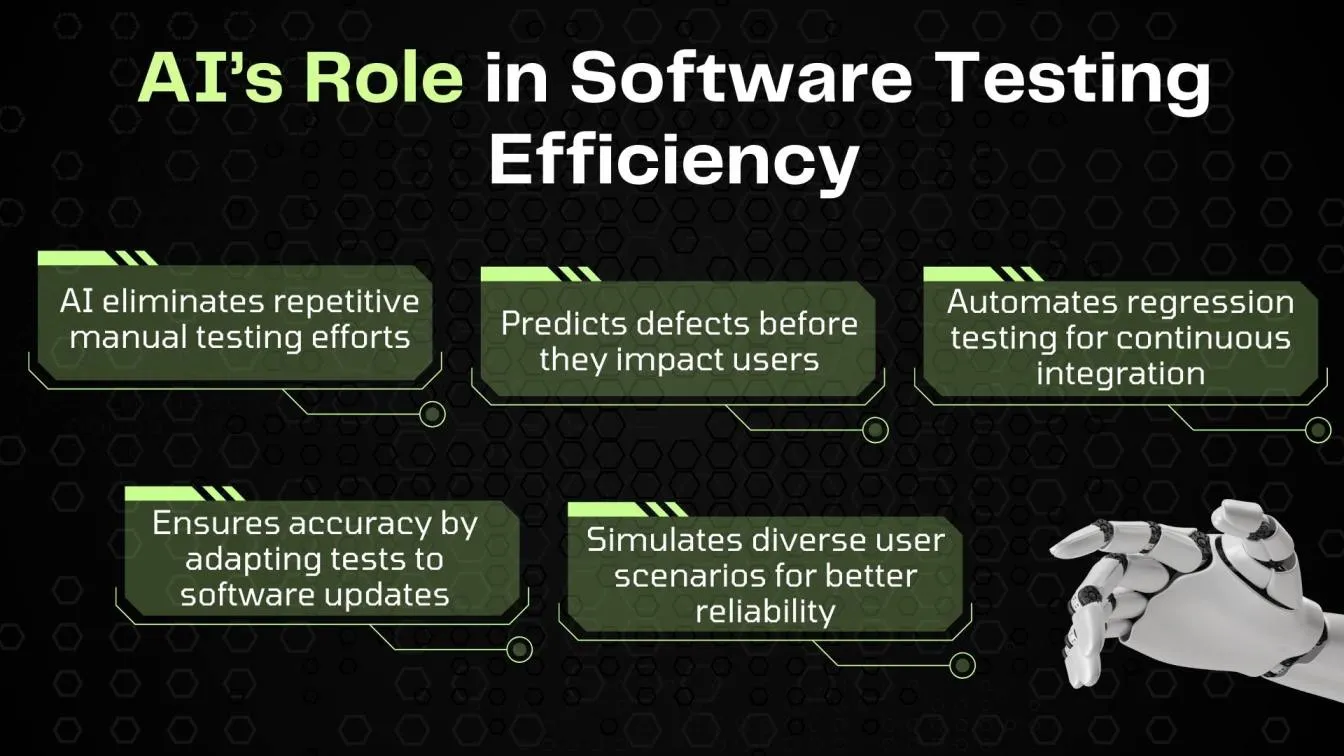
- Improved Accuracy: AI-driven solutions minimize human errors in testing capabilities.
- Defect Prediction: AI analyzes past data to detect potential issues early, preventing critical failures.
- Continuous Integration Support: AI automates testing within the development process, ensuring smooth deployment.
- Consistent Execution: AI executes test cases accurately, reducing inconsistencies.
- Improved Performance Testing: AI simulates real-world conditions to optimize software reliability.
Challenges in AI-Based Software Testing and How to Overcome Them
Artificial Intelligence (AI) is transforming software testing, but its adoption introduces several challenges:
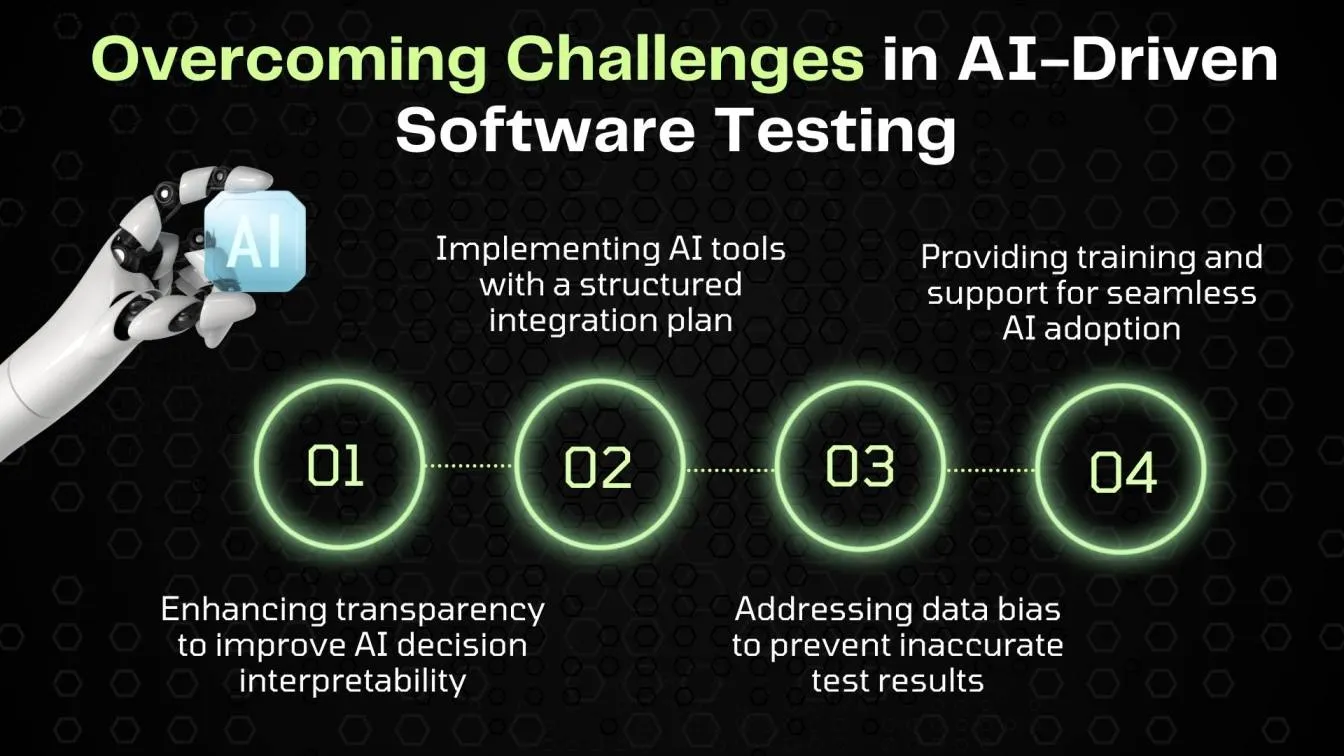
- Data Quality and Diversity: AI models require extensive, high-quality, and diverse datasets to function effectively. Inadequate or biased data can lead to inaccurate testing outcomes.
- To address this, organizations should invest in robust data collection and validation processes to ensure comprehensive test coverage.
- To address this, organizations should invest in robust data collection and validation processes to ensure comprehensive test coverage.
- Explainability and Interpretability: AI-driven testing tools often operate as "black boxes," making it difficult to understand their decision-making processes.
- Enhancing transparency through the development of interpretable models and clear documentation can build trust and facilitate better debugging.
- Enhancing transparency through the development of interpretable models and clear documentation can build trust and facilitate better debugging.
- Integration with Existing Systems: Seamlessly incorporating AI tools into current testing frameworks can be complex.
- Organizations should adopt a phased implementation strategy, providing adequate training and support to ensure smooth integration.
Top AI Testing Tools Companies Are Using Today
Artificial Intelligence (AI) is transforming software testing by enhancing efficiency and accuracy. Here are some of the best AI tools companies are leveraging today:
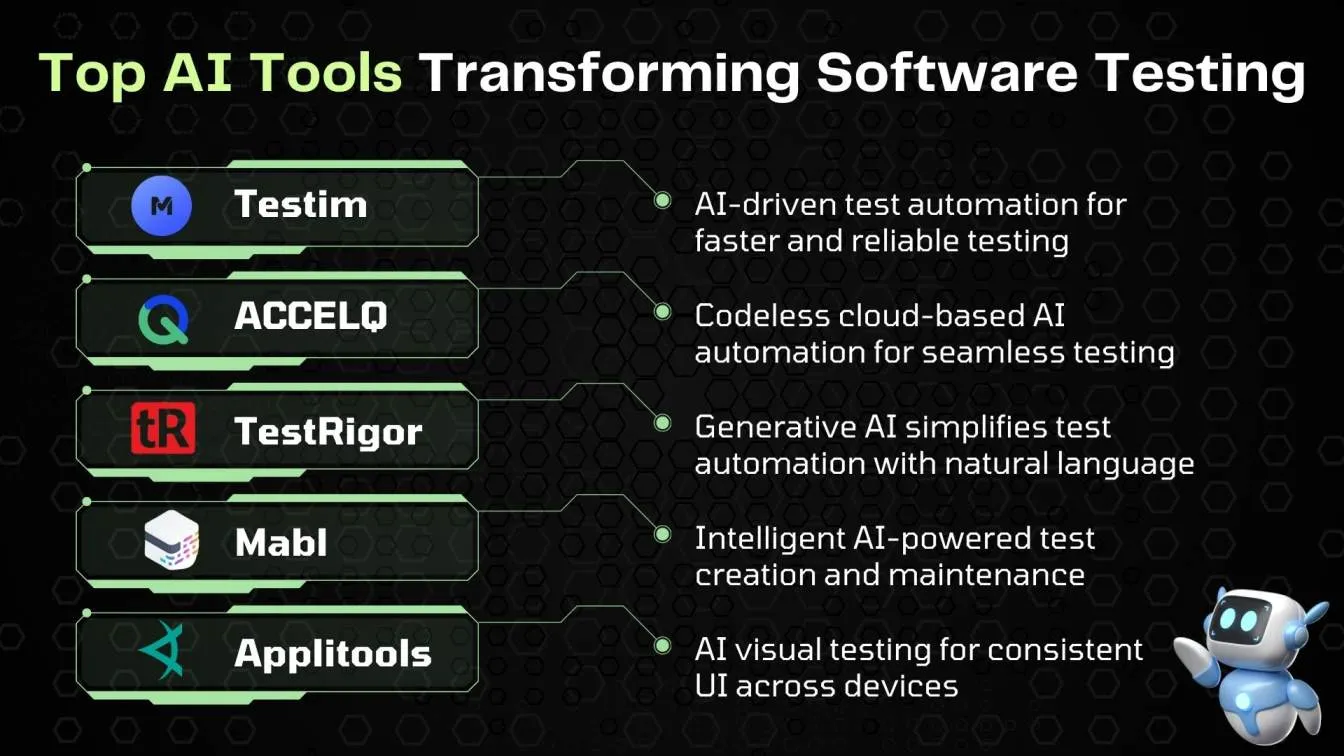
- Testim: Utilizes AI to accelerate the creation and maintenance of automated tests, improving test coverage and reliability.
- ACCELQ: Provides a cloud-based, codeless test automation platform powered by AI, facilitating seamless testing across web, mobile, API, and desktop applications.
- TestRigor: Enables test automation using plain English commands, leveraging generative AI to reduce QA overhead and enhance scalability.
- Mabl: Offers an all-in-one testing solution that uses AI for intelligent test creation and maintenance, ensuring higher test accuracy.
- Applitools: Focuses on visual testing with AI-powered comparisons, ensuring consistent user interfaces across different devices and platforms.
How AI Helps Identify Bugs Faster in Software Testing
Artificial Intelligence (AI) is transforming software testing by significantly accelerating bug detection and resolution. AI-powered tools analyze vast datasets to identify patterns and anomalies that may indicate defects, enabling quicker and more accurate identification of issues. By automating repetitive tasks, AI reduces the reliance on manual testing, thereby minimizing human error and enhancing efficiency.
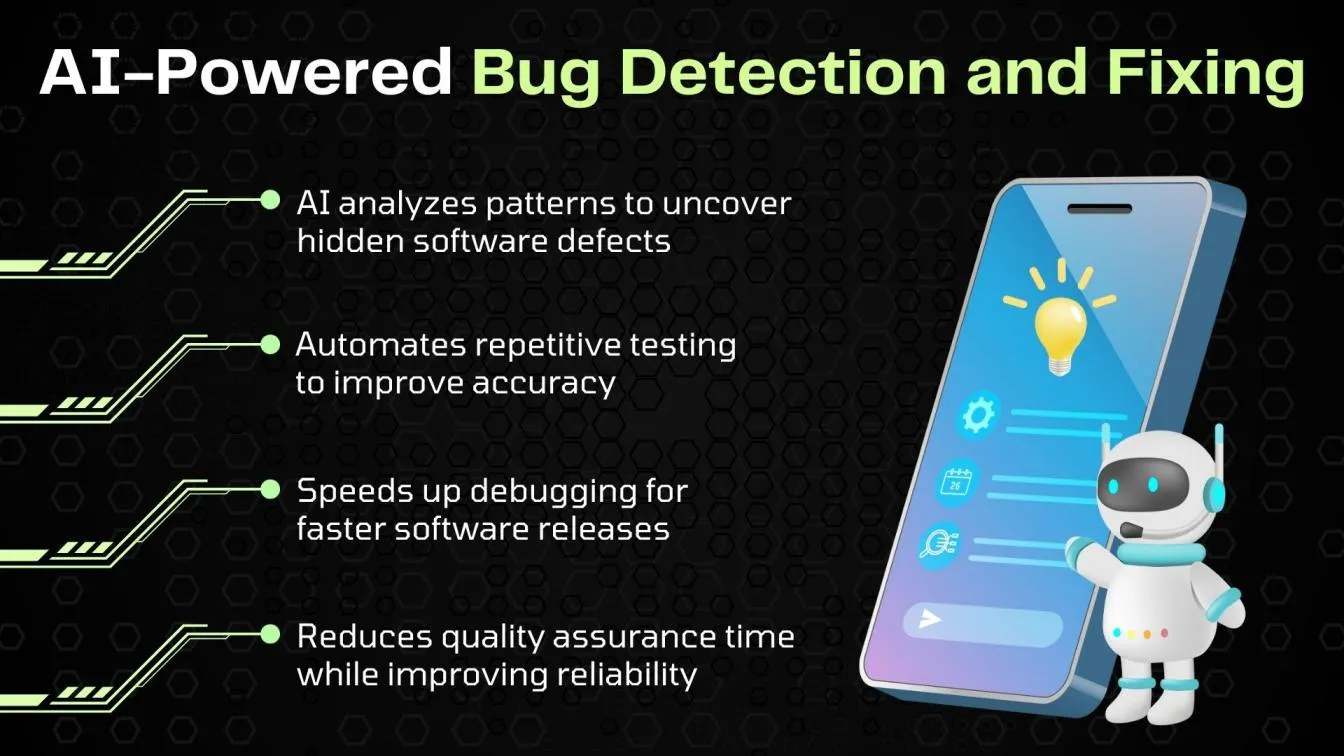
For instance, Razer's AI QA Copilot has demonstrated the potential to enhance bug detection by up to 25% and reduce quality assurance time by 50%, leading to faster product releases. Integrating AI into testing workflows not only accelerates the debugging process but also ensures more reliable and robust software, ultimately improving user satisfaction and reducing time-to-market.
The Growing Demand for AI in Automated Software Testing
The increasing integration of Artificial Intelligence (AI) in automated software testing is driven by its ability to enhance efficiency and accuracy. Key factors contributing to this growing demand include:
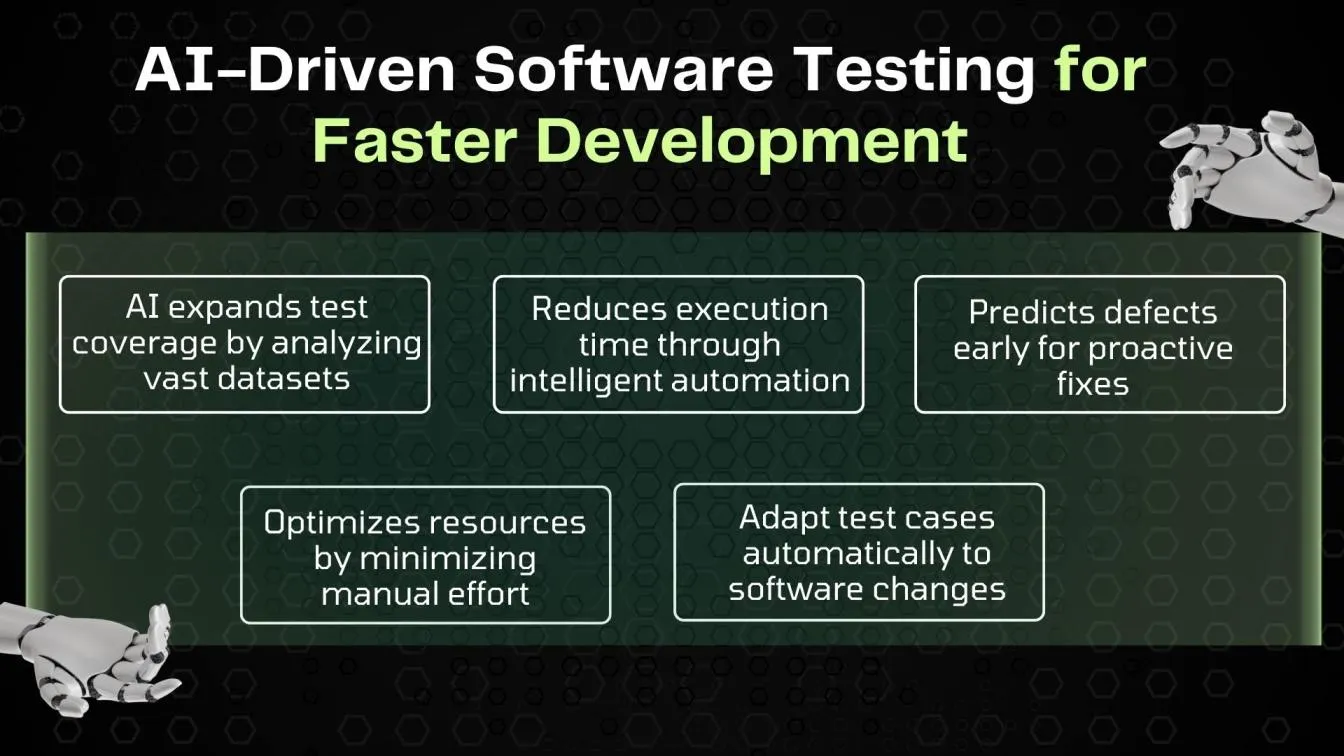
- Enhanced Test Coverage: AI-driven automation testing tools analyze extensive datasets to identify potential gaps, ensuring comprehensive test coverage and improved software quality.
- Time Efficiency: AI-powered automation testing services expedite the testing process by automating repetitive tasks, reducing the time required for test execution, and accelerating time-to-market.
- Predictive Analysis: AI algorithms in testing automation can predict potential defects by analyzing historical data, allowing teams to address issues before they escalate proactively.
- Adaptive Testing: AI enables automation tools for testing to adapt to changes in the application, ensuring that test scripts remain effective even as the software evolves.
- Resource Optimization: Implementing AI in automation testing frameworks reduces the need for extensive manual intervention, allowing teams to focus on more strategic tasks and optimizing resource utilization.
Wind Up!!
AI-based testing is transforming the landscape of software testing by enhancing efficiency and accuracy throughout the software development lifecycle. Traditional methods often require human testers to manually execute test cases, which is time-consuming and prone to errors. AI-driven solutions automate the software testing process, improving the testing experience and enabling a proactive approach to defect detection.
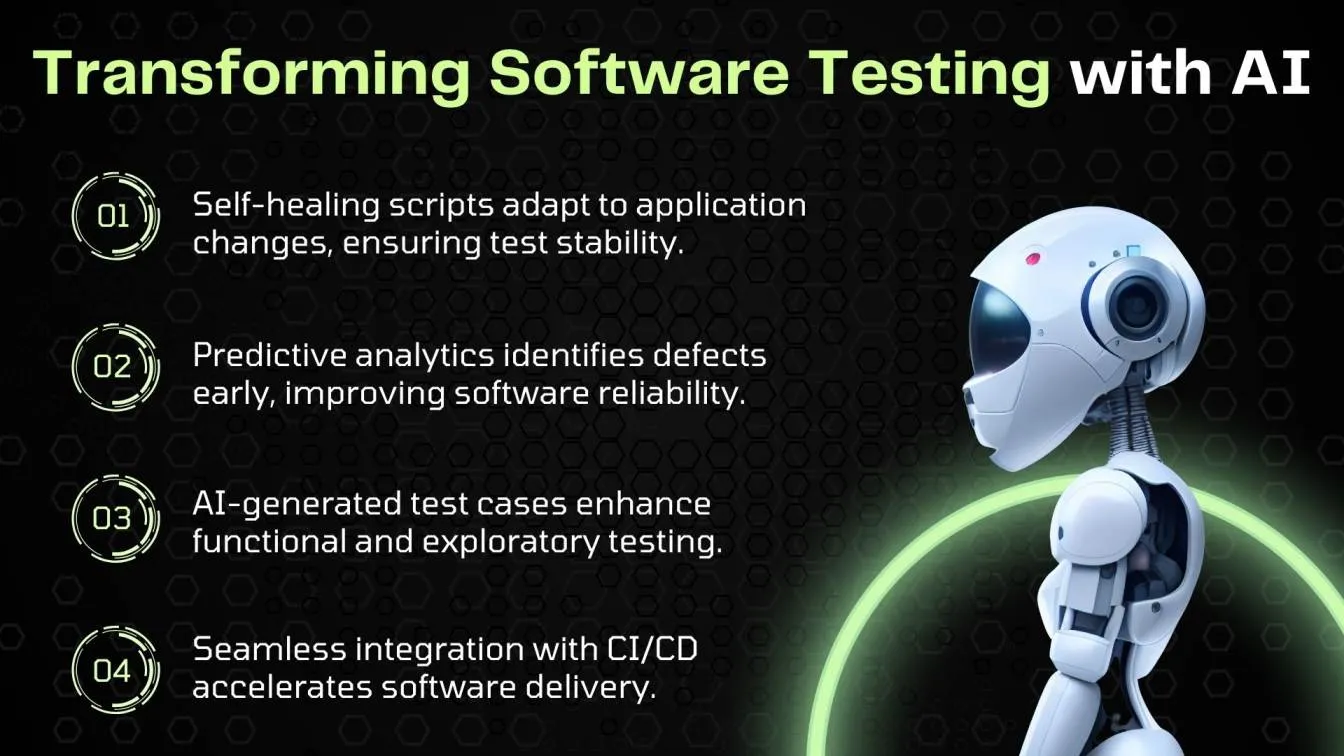
Automated testing offers numerous benefits, such as self-healing scripts and predictive analytics, which streamline the testing procedure. AI-powered tools can analyze user stories and generate test cases, covering a wide range of scenarios. This improves testing capabilities across different aspects of testing, including functional, regression, and exploratory testing.
With continuous integration becoming essential in the development process, AI-driven solutions support a seamless workflow. The future of software testing lies in AI’s impact on software testing, as it optimizes the testing landscape. Businesses are leveraging AI to strengthen their testing team and accelerate software delivery.
Companies prefer Frugal Testing for AI-driven test automation services and QA testing services for enterprises. Leading software testing companies like FrugalTesting.com ensure efficient functional testing solutions.
People Also Ask
Can AI write Manual Test Cases?
AI can assist in generating manual test cases by analyzing requirements, but human testers validate and refine them for accuracy.
Which software tests cannot be automated?
Exploratory, usability, and ad-hoc testing are difficult to automate as they require human intuition, creativity, and real-time decision-making.
What is the future of AI in Test Automation?
The future of AI in test automation will bring fully autonomous testing, intelligent optimization, and adaptive learning. This will reduce human intervention, enhance accuracy, and more efficient.
How to use AI in Selenium?
AI can optimize Selenium by enabling smart element locators, self-healing scripts, and predictive test case execution for better test stability.
What is the role of testers in AI?
Testers ensure AI models function correctly, validate outputs, detect biases, and refine AI-driven test automation strategies.



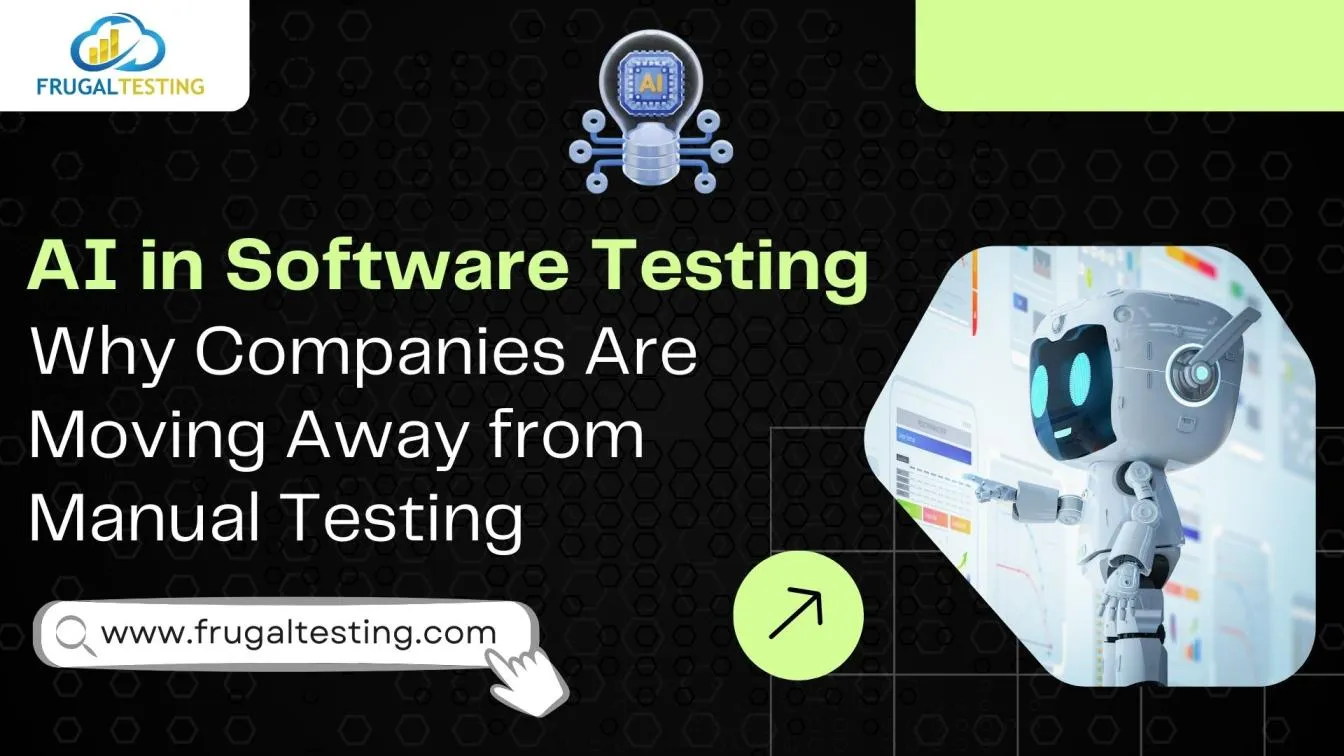

%201.webp)
